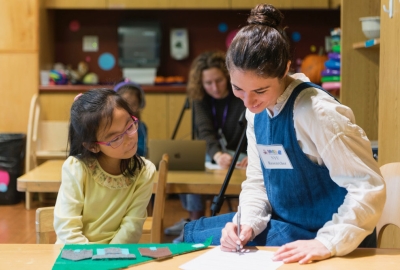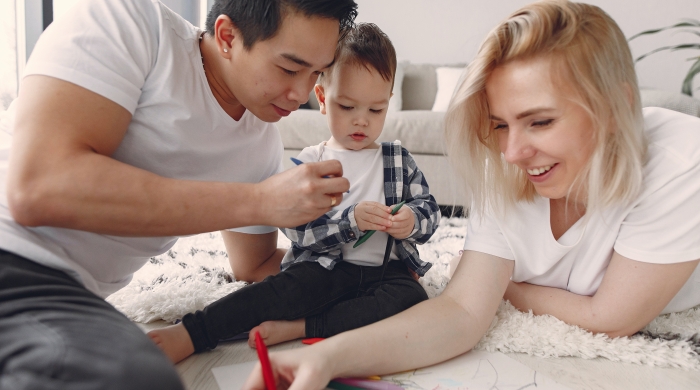
Doing science with young children from home is a great way build on children’s natural curiosity to create opportunities to learn. During the regular school year, the Conceptual Development and Social Cognition lab in NYU’s Department of Psychology conducts research on how children learn from others and their own explorations at the Children’s Museum of Manhattan (CMOM). While we are all spending time at home, CMOM offers these excellent activities for at-home science activities for young children (primarily ages 2-6) that parents can do with limited set-up and materials that they already have on hand. The Boston Children’s Museum offers excellent resources for families to do science at home as well.
To increase the benefits of doing science from home, research from the Conceptual Development and Social Cognition Lab has found that it is helpful for parents to be sure to name the activities as part of doing science. For example, simply asking children if they are ready to “do science” before starting an activity helps children realize that the fun they are about to have is part of science! Also, naming the steps of the different science activities -- for example, asking children to use their senses to make observations (about what they see, feel, or hear) at the start of each activity, to make predictions about what might happen next at key times in the activity, and then to get excited about checking to see what happens -- can help children learn to see science as an exciting process of discovery.
Our research has found that helping children to see science as a fun process for discovering things about the world can even counter the development of harmful social stereotypes. Helping children see science as something that people do (and that they themselves can do), can block the development of the problematic idea that only some kinds of people can grow up to be scientists. Instead, everyone can do science!
Another way to do science from home is to participate in our studies of child development right from your home computer! Visit the Discoveries in Action website to find current research projects (also led by the Conceptual Development and Social Cognition lab from NYU’s Department of Psychology) that children and their parents can participate in anytime from any computer with a webcam. These research studies focus on cognitive and social development in children ages 3-10. Most take about 10-15 minutes to complete and families receive an electronic Amazon gift-card as a “thank you” for participating. Parents can visit the Discoveries in Action website anytime to sign-up, and if there isn’t a study available for children in the right age range right away, we’ll notify you when one becomes available.
Dr. Marjorie Rhodes is an Associate Professor of Psychology in NYU's College of Arts and Sciences. Her research examines conceptual development and the development of social cognition.
Learn More
Taking Deep Breaths and Counting to Ten
IES-PIRT fellows and doctoral students in the Developmental Psychology program Daniel Suh and Jacob Schatz offer insight, suggestions, and resources for parents who now must become math teachers at home due to COVID-19.


